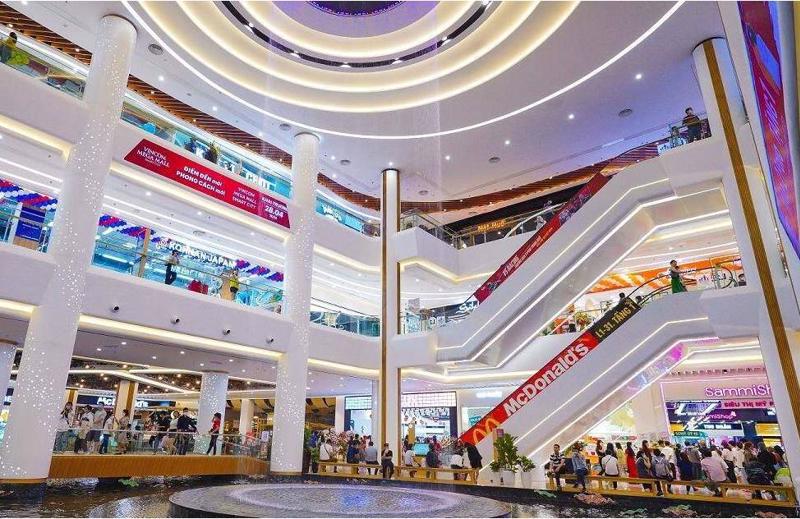Savills Hanoi’s Commercial Leasing Department has revealed that Vietnam, and particularly Hanoi, has evolved into an ideal destination for international brands, from fast fashion to luxurious and high-end retail.
Ms. Hoang Nguyet Minh, Senior Director of the Commercial Leasing Department at Savills Hanoi, noted that, in the post-Covid-19 period, Vietnam has emerged as a potent market with robust appeal, driven by a surge in domestic consumer spending, and has increasingly attracted the interest of global brands.
She highlighted another key factor contributing to Vietnam’s retail allure: compared to neighboring countries such as Singapore, Thailand, and Indonesia, the number of international brands present in the country remains limited. This creates a significant opportunity for brands seeking to expand in the market and especially those taking their initial steps in the country.
Hanoi in particular is garnering attention as a hotbed for retail development due to its rapid urbanization, high population density, and growing number of middle-income households, coupled with a large working-age population. These robust foundational factors have generated substantial demand for retail in Vietnam’s capital.
Its retail market has simultaneously observed increased dynamism in the luxury retail segment, marked by expansions and the opening of new stores. Premium brands are adopting a strategy of establishing flagship stores in prime locations. Notably, the market attracts famous brands due to the doubling of ultra-rich individuals in Vietnam, with an additional 70 per cent increase in wealthy individuals over the past five years; a trend expected to continue sharply over the next five years. The prospects for luxury brand sales in Vietnam contribute to driving further expansions and the entry of more new brands into the country.
Nevertheless, a current challenge for retail brands, especially luxury players, revolves around the supply of retail space. Ms. Minh said that both domestic and international retailers are now trending towards shopping malls. With a more systematic development approach than individual small outlets, shopping malls are increasingly solving the puzzle of building tenant portfolios, upgrading services and amenities, and providing clear legal corridors to support retailers. Simultaneously, Hanoi’s Old Quarter, which boasts many houses and small retail businesses, will face challenges in finding tenants to fill vacancies in the new period.
There is, however, an insufficient number of shopping malls in Hanoi. The emergence of new shopping malls in the future will therefore be a decisive factor, not only creating space for new brands but also promoting competition and diversification in the retail market. Hanoi, with its untapped potential, will undoubtedly remain an attractive destination for the expansion of international brands in the years to come.
“The retail market in 2024 and 2025 will be even more vibrant, as Vietnam has been evaluated as a focal market in Southeast Asia for international retailers expanding operations, leading to large market demand,” Ms. Minh said. “The market will also receive new high-quality supply in the commercial center segment in Hanoi over the next three years.”
“Meanwhile, retail premises and the ground floor of residential blocks will face challenges in leasing, and rental prices will be difficult to increase at the same rate as ground floor rents at shopping malls due to scale, service, and tenant specificities in each project.”









 Google translate
Google translate